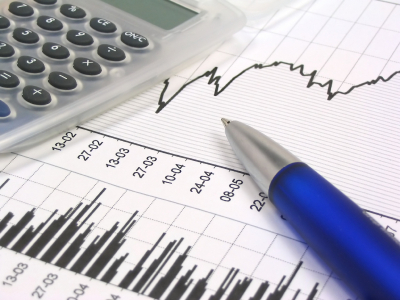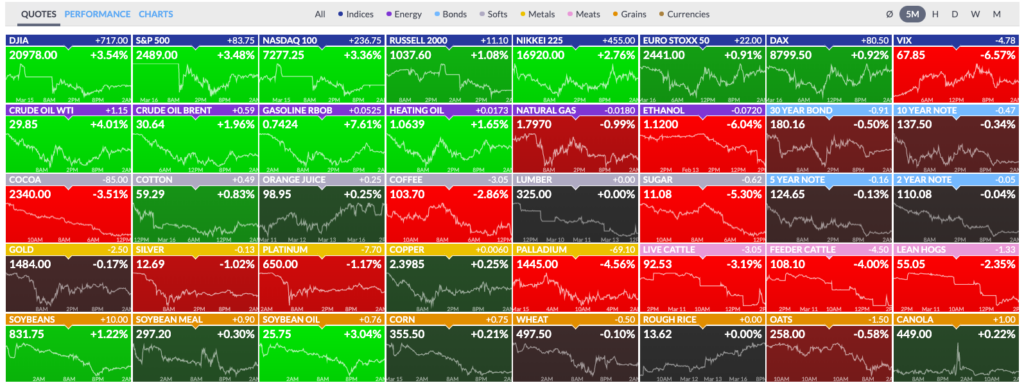7 tips on how to get started with professional trading
- Von Thomas

- 1) 1st tip - make yourself a business plan
- 2) 2nd tip - organize your finances
- 3) 3rd tip - make sure you get a good education
- 4) 4th tip - develop a good trading strategy
- 5) 5th tip - pick the right asset class
- 6) 6th tip - decide on the right broker
- 7) 7th tip - keep your distance from the markets
- 8) Conclusion
Professional trading. Many people dream of this all their lives. But it’s often not even the money that makes many people dream of this job. It’s more about a self-determined life, independence, the freedom to choose where to work or simply escaping the famous hamster wheel.
In this article, we give you 7 tips or pieces of advice on how this dream can come true. Please consider this advice as a rough guide and don’t think that you have to work through it in this exact order. Because everything fits together like a big jigsaw puzzle. So – let’s get started.
As mentioned at the beginning, trading is a profession. Trading is not a game or a hobby, but a job that you have to learn and then take seriously. Which brings us straight to point 1.
1st tip - make yourself a business plan
It only takes a few days to set up and capitalize a trading account with any broker. But this is certainly not the first step you should take if you want to become a professional trader. Step 1 is to sit down and work out a plan.
This plan should include everything you need to get started. These resources include a timeline, a training plan and a financial plan. Which brings us to the next point.

2nd tip - organize your finances
The first hint in this tip 2 is that you need to save in order to be able to trade professionally. Because you have to be able to afford trading.
I understand that in a blog post about prospective professional trading you don’t want to hear about saving money. But I honestly don’t care what you want to hear, because I’m being honest with you. Because as you will see in tip 5, you need a certain amount of capital to trade.
Also remember – how much money you have to trade is not necessarily the same as how much money you need to trade professionally. Regardless of the starting capital of a trading strategy itself, there is also the question of what costs you will incur for hardware and software.
Furthermore, the subscription to various data packages, for example for prices (historical, live streaming), should also be included in your financial calculation. And finally, set yourself a budget that defines your training costs, because you can’t get professional trading knowledge for free. This brings us to the next point.

3rd tip - make sure you get a good education
How do you become a doctor or lawyer? With YouTube? With social media? Not comparable? Yes – for sure. Trading is just as complex as any other high-quality profession and your opponents, the other market participants, are all professionals from hedge funds, banks or the big funds. How can you seriously compete with them if you have no professional training?
Nobody is a good trader after 3 YouTube videos. But you will be after taking our master class, which lasts several weeks or months. So look for a mentor who has many years of experience. Ideally, this should be someone who has already been responsible for client funds and therefore knows how to act carefully and trade prudently.

4th tip - develop a good trading strategy
If you have internalized the basics of system development, for example by attending our Masterclass, then this is really just the start for you. Because then you will know everything you need to carry out further research yourself.
As a trader, you will continue to learn throughout your life, come up with new ideas and then refute or confirm these ideas, also known as hypotheses, yourself.

5th tip - pick the right asset class
Are you a forex trader? Then in all clarity – please trade something else. Forex trading attracts beginners like moths to a flame. The reason is simple: because forex trading is possible with just a few hundred euros of starting capital.
And there are no more difficult markets than FX trading. These markets are so efficient, even in the smaller time frames, that as a trader you can hardly find an advantage that you can trade profitably.
What do we base this statement on? On millions of backtesting test runs (quantitative analyses). And you can see very quickly that it is very difficult to find good trading rules in Forex. (see tip 4).
Instead of Forex, you should trade shares as a beginner. Just like we do. This asset class is easy to understand, simple to trade and also the best thing you can trade from a quantitative analysis point of view. Not only as a beginner. Sensible share trading begins with a starting capital of EUR 10,000. If you don’t have this amount, then see tip 2, sentence 1.

6th tip - decide on the right broker
We talked about trading shares in point 5. Not shares using CFDs. That is a big difference. Get into the habit of not trading issuer products right from the start. In many cases, you are trading against your broker and the only thing that interests this broker is how he takes the money out of your pocket.
Of course, this is not illegal, because these companies are usually large corporations and they employ good lawyers. You as a (sorry) small trader are helplessly at their mercy.
And even if you decide to trade shares, choosing a broker is not a foregone conclusion. The four most important things that characterize a good stock broker are (in this exact order)
Note: you are sure to find the explanation for point 4 via the search function in our stock exchange and trading blog.
- low fees (less than 2 USD/EUR for an order)
- all (western) stock markets tradable and especially all US stocks
- interfaces for auto trading
- extended order types such as moo/opg or moc (market on open/opening/market on close)

7th tip - keep your distance from the markets
The internet is what makes trading in its current form possible for us in the first place. But it is also the internet that distracts us from the essentials. Because if you have taken tip 4 to heart and worked out a good trading plan (strategy), it is now a matter of implementing a strategy and that requires distance.
And for mental reasons. The closer you are to the constant fidgeting of prices, and this is especially true for beginners, the more prone you are to making mistakes. Fear rules and dominates your actions and the more distance you keep, the more relaxed you will be or remain. Believe me!
Good trading strategies also rely on a high degree of automation. Your physical presence in front of the PC is by no means necessary during trading hours. How to do this exactly is also part of our Masterclass.

Conclusion
Let’s summarize the 7 tips here again before we draw a conclusion:
- make a business plan
- organize your finances
- take care of a good education
- develop a good trading strategy
- choose the right asset class
- decide on the right broker
- keep your distance from the markets
Good traders don’t fall from the sky. Good traders are made. In the hard school of the stock market and daily trading. Professional traders live a life that others dream of. Like me, they can trade from anywhere in the world, are not tied to others in terms of time and space and live their dream of freedom.
But you have to do something for it. A lot, in fact. But once you’re on course, nothing can stop you. How do you get on track? As mentioned in tip 3: with a good education.
To this end, we can recommend our big 5th day workshop “Best of Masterclass – Platinum”. Our first live seminar in many years will take place from June 24 to 28 in Vienna. You can take part in this workshop live on site in Vienna or join us from home via streaming. We still have places left!
You are guaranteed to be a better trader afterwards.


